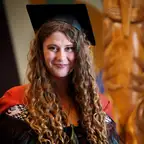Type of qualification
Level of study
Once you’ve graduated with a bachelor’s degree – or have equal experience – you can study at the postgraduate level. Doctoral qualifications require additional entry requirements.
Our courses follow the New Zealand Qualification Framework (NZQF) levels.
Time to complete
Where you can study
International students
International students are not New Zealand citizens or residents.
Study a Master of Applied Social Work – MAppSW
If you want to become a registered social worker, but don’t have a bachelor’s degree in social work, then this qualification is for you.
The Master of Applied Social Work is designed for those with relevant practice experience, or a bachelor’s degree in a related discipline. That could include psychology, education, law, medicine, nursing, sociology, anthropology, theology or case management, or other related disciplines.
This qualification will prepare you for practice and registration as a social worker in Aotearoa New Zealand and other English-speaking countries, subject to their registration regulations.
Add to social work knowledge
You will be able to make cutting-edge contributions to your discipline. You’ll benefit from our practical, research-informed, forward-thinking and academically credible courses. They’ll help you contribute to knowledge-building in Aotearoa New Zealand and internationally.
Small engaging classes
Classes are small. Our interactive and transformative teaching methods will challenge your attitudes and beliefs. In addition, you will have opportunities to participate in field trips and Noho Marae. There are no exams and all work is assessed through assignments that cater for a range of learning styles.
Study while you work
It is possible to work part-time while completing this qualification. This programme can be completed in two years studying full-time or in up to six years studying part-time.
Gain experience in the field
The Master of Applied Social Work includes two different supervised field experiences organised and supervised by Massey. You will spend a minimum of 120 days over a course of your study in social services settings gaining experience in social work practice. If you’re already working in social services, one of your two placements could be at your current workplace.
International students
Aotearoa New Zealand is a great place to study. Massey University’s reputation is supported by our international rankings, accreditations and associations. We are rated five star plus by the QS World University Rankings.
Massey University has small class sizes, and our lecturers and staff are friendly and approachable.
As an international student, there are entry requirements that will apply to you. We recommend that you apply at least six months before your anticipated start date so your application can be processed in time. There are additional steps you will need to take. These include obtaining a visa and travel bookings if your study is to be in Aotearoa New Zealand.
- Find out more about life as an international student at Massey, applying to Massey and getting help.
- Entry requirements for international students.
A MAppSW is a good fit if you:
- have a goal of helping people from all walks of life
- believe in social justice
- are intrigued by how systems and people work and how to manage relationships.
Entry requirements
Admission to Massey
All students must meet university entrance requirements to be admitted to the University.
Specific requirements
The Master of Applied Social Work is a selected entry qualification. This means there are a number of extra requirements you must meet.
To enter the Master of Applied Social Work you will:
- have been awarded or qualified for an undergraduate degree, either in the social sciences (such as social and cultural studies, psychology, human development) or an alternative degree with substantial relevant experience in a social or community setting
- be selected into the qualification on the basis of a process which includes:
- providing a personal statement explaining why you wish to enter the social work programme and profession
- providing two character referees – these must not be family or friends
- providing a curriculum vitae that includes academic and work history
- undertaking an interview.
You will provide copies of all official academic transcripts for studies taken at all universities other than Massey University.
Once you are successful at gaining a place in the Master of Applied Social Work qualification, you will also need to complete further tasks. These are to meet the requirements set down by the Social Workers Registration Act 2003 for registration as a social worker in Aotearoa New Zealand (to ensure you are a “fit and proper person to practise social work”). You will need to:
- complete the vetting service request and consent form for an Aotearoa New Zealand Police check. Please note that the Criminal Records 'Clean Slate' Act 2004 does not apply to all qualifications.
- provide a current police certificate from any overseas countries you have lived in for 12 months or more in the last 10 years.
If English, Māori or Aotearoa New Zealand sign language is not your first language, you will need to provide official evidence of your English language competency in the form of:
- an IELTS test with an overall academic score of at least 6.5, with no band score less than 6.5, taken within the preceding two years, or
- a TOEFL internet-based test (IBT) score of 85 or higher with a writing score of 22, or
- at least two years of successful study in a Aotearoa New Zealand secondary school, with at least 10 Level 2 NCEA credits in literacy (five reading and five writing), or equivalent.
A bachelor’s degree from a Aotearoa New Zealand university will meet English language competency requirements.
Application closing date
Applications for this qualification close on 31 January of the year of study (Semester One).
About referees
We require two people who can act as referees for you. A referee should be someone who has known you for one year or more in the capacity of employer, educator, work colleague or person of community standing, e.g. kaumātua, Minister or similar. Your referee should not be a friend, flatmate, relative or someone who has not known you for at least a year. The information your referee supplies is confidential to those involved in the selection process.
Time limits for Honours, Distinction and Merit
Where your qualification is completed within the stated time limit and to a high standard, you may be able to graduate with Distinction or Merit.
- Look for information under ‘Student Progression’ in the General Regulations for Postgraduate Degrees, Postgraduate Diplomas and Postgraduate Certificates.
- Contact us through the Get advice button on this page if you have any questions.
Prior learning, credit and exemptions
For information on prior learning, exemptions and transfer of credit or other questions:
- review the Recognition of Prior Learning regulations
- contact us through the Get advice button on this page.
English language skills
If you need help with your English language skills before you start university, see our English for Academic Purposes (EAP) courses.
Maximum time limits for completion
There are maximum time limits to complete postgraduate qualifications. If you do not complete within the maximum time, you may be required to re-apply for the qualification if you wish to continue your studies.
Official regulations
To understand what you need to study and must complete to graduate read the official rules and regulations for this qualification.
You should read these together with all other relevant Statutes and Regulations of the University including the General Regulations for Postgraduate Degrees, Postgraduate Diplomas, and Postgraduate Certificates.
Returning students
For returning students, there may be changes to the majors and minors available and the courses you need to take. Go to the section called ‘Transitional Provisions’ in the Regulations to find out more.
In some cases the qualification or specialisation you enrolled in may no longer be taking new enrolments, so may not appear on these web pages. To find information on the regulations for these qualifications go to the Massey University Calendar.
Please contact us through the Get advice button on this page if you have any questions.
Structure of the Master of Applied Social Work
While the structure of the qualification is set, there is scope within the courses to choose your particular emphasis from within the fields of social or community work practice.
If you study full-time, you’ll take 120 credits per year or 60 credits per semester.
Mode of study
Most of the courses are taught in block mode or contact workshop where the class contact is in a compressed time period.
Courses and specialisations
Key terms
- Courses
- Each qualification has its own specific set of courses. Some universities call these papers. You enrol in courses after you get accepted into Massey.
- Course code
- Each course is numbered using 6 digits. The fourth number shows the level of the course. For example, in course 219206, the fourth number is a 2, so it is a 200-level course (usually studied in the second year of full-time study).
- Credits
- Each course is worth a number of credits. You combine courses (credits) to meet the total number of credits needed for your qualification.
- Specialisations
- Some qualifications let you choose what subject you'd like to specialise in. Your major or endorsement is what you will take the majority of your courses in.
Credit summary
240 credits
- Compulsory courses – 210 credits
- Research report – 30 credits
- 120 days of field education and associated reports
During your study you must continue to meet requirements for registration set down by the New Zealand Social Workers Registration Board.
Course planning key
- Prerequisites
- Courses that need to be completed before moving onto a course at the next level. For example, a lot of 200-level courses have 100-level prerequisite courses.
- Corequisites
- Courses that must be completed at the same time as another course are known as corequisite courses.
- Restrictions
- Some courses are restricted against each other because their content is similar. This means you can only choose one of the offered courses to study and credit to your qualification.
Compulsory courses (Choose 240 credits from)
Course code: 179781 Social Work Theory and Practice 30 credits
A critical examination of social work theory and social work as a profession. A reflexive study of the utilisation of theories, models and skills for practice with individuals, whānau, families, groups and communities.
View full course detailsCourse code: 179782 Wellbeing and Sustainable Development 30 credits
An examination of the role of community development and social policy in advancing wellbeing and sustainable development with a particular focus on history, theory, strategies, and stakeholders.
View full course detailsCourse code: 179783 Manu tute 30 credits
A critical examination of the personal and professional self as Mana Whenua or Mana Tiriti, social citizenship and active responsibility in advancing Mana Whenua aspirations. There is active engagement in Tangata Whenua theories and models of practice.
View full course detailsCourse code: 179784 Advanced Study of Fields of Practice in Social Work 30 credits
An advanced study of social work in selected fields of practice examining current issues, theory, practice and research.
View full course detailsCourse code: 179789 Field Work Practice I 30 credits
A supervised field education placement of a minimum of 480 hours (60 days) in a social service setting negotiated by a Massey University staff member who is fully registered with the Social Workers Registration Board. Each placement will be supervised by a registered social worker.
View full course detailsCourse code: 179792 Organisations, Leadership and Social Work 15 credits
A critical examination of current management and organisational theory and practice and its implications for leadership, management, administrative systems and professional practice in social service agencies.
View full course detailsCourse code: 179890 Field Work Practice II 30 credits
An advanced, supervised, field education placement of a minimum of 480 hours (60 days) in a social service setting negotiated by a Massey University staff member who is fully registered with the Social Workers Registration Board. Each placement will be supervised by a registered social worker.
View full course detailsCourse code: 179891 Applied Research in Social Work 15 credits
An advanced examination of applied research methodologies and methods used in social work and social policy to promote best research practice.
View full course detailsCourse code: 179895 Research Report (30) 30 credits
An applied research project with topics selected from areas relevant to social work, social policy, and/or the social services in the Aotearoa New Zealand context. Selected topics must be confirmed by the supervisor who will assist students in planning and managing their research.
View full course detailsFees and scholarships
Fees, student loans and free fees scheme
Your tuition fees may be different depending on the courses you choose. Your exact fees will show once you have chosen your courses.
There will also be some compulsory non-tuition fees and for some courses, there may also be charges for things such as study resources, software, trips and contact workshops.
- Get an estimate of the tuition fees for your qualification
- View a list of non-tuition fees that may be payable
Already know which courses you're going to choose?
You can view fees for the courses that make up your qualification on the course details pages.
Student loans (StudyLink) and Fees Free scheme
You may be eligible for a student loan to help towards paying your fees.
The Aotearoa New Zealand Government offers fees-free tertiary study for eligible domestic students. Find out more about the scheme and your eligibility on the Fees Free website. To use the site's eligibility checking tool, you will need your National Student Number.
Current and returning Massey students can find their National Student Number in the student portal.
- Student loans (StudyLink)
- Fees Free
- Student portal
Scholarship and award opportunities
Find more scholarships and awardsFees disclaimer
This information is for estimation purposes only. Actual fees payable will be finalised on confirmation of enrolment. Unless otherwise stated, all fees shown are quoted in New Zealand dollars and include Goods and Services Tax, if any. Before relying on any information on these pages you should also read the University's Disclaimer Notice.
Careers and job opportunities
A social work degree means you can work in many different areas. You could be a field operator working in the community or you could be a professional adviser in a hospital or a district health board. You might choose to be a policy expert working with government. Or, you could travel overseas to the jungles of Papua New Guinea to work within a village setting. The options are endless – and endlessly meaningful.
Social workers make a difference in many areas around the world including:
- hospitals and primary health care
- mental health and addictions
- voluntary and community organisations and government organisations
- child protection
- youth justice
- housing
- offenders
- residential care
- management and supervision
- national and international non-government organisations
- tertiary education
- community work and community development
- refugees and migrants
- city councils
- schools.
“Massey provided an environment that enabled me to realise my potential and thrive academically. My studies prepared me very well to become a social worker who is highly adaptable, with critical thinking skills that have provided me with opportunities to offer more in any work setting.”

“If you are keen on learning Social Work – not just the theoretical approaches but also the practical applications – you should study at Massey, where the course is designed to prepare you for the industry. The support from the lecturers and other departments is commendable.”

“I loved the idea of empowering people and breaking down barriers. The Māori Development course I took awoke such a passion in me for te ao Māori, which led me to do placements with Māori organisations as well as basing a lot of my assignments and research around kaupapa Māori social work.”

Te Ātiawa ki Whakarongotai, Ngāti Raukawa ki te Tonga and Ngāti Toa Rangatira, Ngāti Ruanui, Ngā Ruahine
Related study options
Bachelor of Social Work – BSW
Become a registered social worker to support the wellbeing of individuals, families, whānau, and diverse communities by helping them through challenging situations, and advocating for environmental sustainability, social justice and social change.
Master of Social Work – MSW
Take the next step in your social work career. Improve your practice and gain new knowledge to become an excellent social worker who makes a difference.
Postgraduate Diploma in Social Service Supervision – PGDipSSS
The Postgraduate Diploma in Social Service Supervision offers an advanced qualification for professionally qualified social and community workers and other social service professional supervisors.
Postgraduate Diploma in Social Work – PGDipSW
Take your social work career to the next level with Massey’s Postgraduate Diploma in Social Work.
Useful planning information

Key information for students
Compare qualifications and academic information across different New Zealand institutions. Learn more on careers.govt.nz